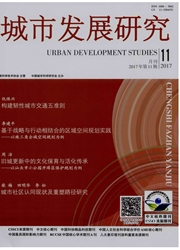

 中文摘要:
中文摘要:
1960年代以后,西方规划体系普遍经历了从土地控制向战略引导的转变。首先系统梳理了国外都市区战略规划的起源、衰落和复兴的过程,然后选择大伦敦战略规划、芝加哥大都市区规划和新加坡概念规划这三个在全球范围内具有广泛的代表性和影响力的都市区战略规划作为范例,系统分析了其规划组织者与参与者、规划过程和实施机制,以把握当前国外都市区战略规划的共性和在不同治理环境及规划制度下的个性特征。
 英文摘要:
英文摘要:
The Western planning system has gone through a change from land control to strategic guide after the 1960s. The article combs the origin, declination and revival of foreign metropolitan strategic planning in the first place. Then, to seize the commonality of foreign strategic planning and individuality in different governance environments and planning systems, the article chooses Greater London Plan, Go To 2040 and Singapore's Concept Plan as examples, which are representative and influential all over the world, and analyzes the organizers and participants, as well as processes and implementation mechanism of the Strategic Planning systematically.
 同期刊论文项目
同期刊论文项目
 同项目期刊论文
同项目期刊论文
 期刊信息
期刊信息
